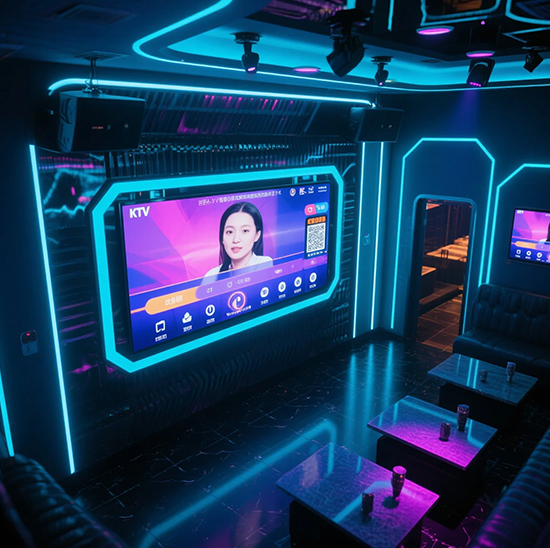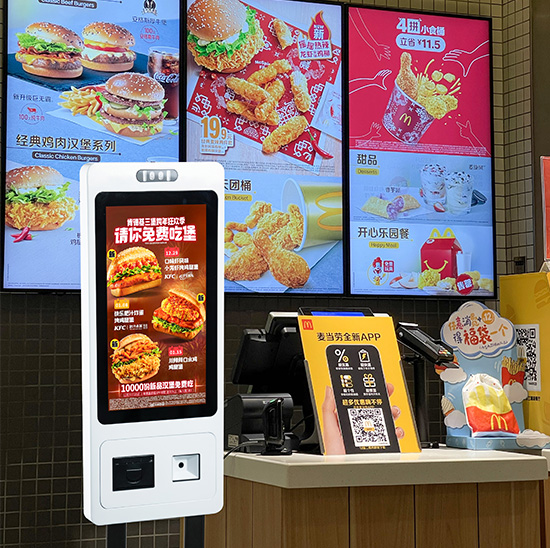En tant qu'interface importante pour l'interaction homme-machine, l'état de la demande et la tendance de développement futur de 21.5 les moniteurs tactiles en pouces montrent une tendance positive. Ce qui suit est une analyse détaillée de l'état actuel et du développement futur des applications tactiles d'affichage:

Statut de demande
Champs largement applicables:
Électronique grand public: Les écrans tactiles dominent les produits électroniques grand public tels que les smartphones, comprimés, et des ordinateurs portables, Devenir le principal moyen pour les utilisateurs d'interagir avec les appareils.
Dans l'affichage de la voiture: Avec la tendance de l'électrification, électronisation, et intelligence des automobiles, en voiture écrans tactiles deviennent progressivement populaires et leur taille augmente progressivement, Amélioration de la commodité et de la sécurité de la conduite.
Contrôle industriel: Dans le domaine du contrôle industriel, Les écrans tactiles fournissent une interface de fonctionnement intuitive, rendre pratique pour les travailleurs de surveiller et de faire fonctionner l'équipement.
Médical, financier, restauration, etc.: 21.5 Les moniteurs tactiles en pouces ont été largement utilisés dans l'examen des dossiers médicaux, Enquête sur le compte financier, Commande de restauration, etc., Améliorer l'efficacité des services et la satisfaction du client.
Caractéristiques techniques:
La combinaison de la technologie d'affichage des cristaux liquides et de la technologie d'écran capacitif fait que les écrans tactiles ont les caractéristiques des couleurs vives, Images effaçantes, et touche sensible.
La technologie tactile est constamment mise à niveau, Passer des écrans tactiles résistifs aux écrans tactiles capacitifs, Amélioration de la précision et de la sensibilité du toucher.
Tendances du marché:
Avec la promotion de la vague d'intelligence, La taille du marché des écrans tactiles continue de croître.
Le marché boursier est principalement composé de petits et moyens produits, tandis que le marché de grande taille a un taux de croissance plus rapide et un développement diversifié des produits d'application de terminal.
21.5 moniteur tactile en pouces FDéveloppement futur
Interaction intelligente:
À l'avenir, Les écrans tactiles intégreront plus de technologies de détection, comme la voix, geste, et reconnaissance faciale, Pour obtenir une interaction plus conviviale et intelligente.
Grâce à l'intégration de la technologie de l'IA, 21.5 le moniteur tactile en pouces sera en mesure de comprendre plus précisément les intentions des utilisateurs et de fournir des services plus personnalisés.
Haute définition et diversification:
Adopter des technologies de projection et d'affichage plus avancées, comme la technologie d'affichage 3D, pour améliorer l'effet et le réalisme des images.
Les écrans tactiles se développeront vers une ultra-définition ultra de grande taille, Centres étroites, et faible coût, Répondre aux besoins de scénarios d'application plus diversifiés.
Applications multi-scénarios:
21.5 Le moniteur tactile en pouces sera appliqué dans plus de domaines, comme les maisons intelligentes, transport intelligent, appareils portables, etc..
Avec le développement de la technologie IoT, Les écrans tactiles deviendront l'un des terminaux importants pour construire des villes intelligentes.
Portabilité et léger:
De nombreux appareils ont commencé à avoir des batteries intégrées et des capacités de miroir d'écran sans fil, Permettre aux utilisateurs d'utiliser des écrans tactiles à tout moment dans n'importe quel environnement.
À l'avenir, Il peut y avoir plus d'appareils légers et portables apparaissant sur le marché pour répondre aux besoins des gens pour utiliser des écrans tactiles à tout moment et n'importe où.
En résumé, comme une interface importante pour l'interaction humaine-ordinateur, Les écrans tactiles ont un large éventail d'applications et de tendances de développement futures. Avec l'avancement continu de la technologie et l'expansion du marché, Les écrans tactiles seront appliqués dans plus de domaines et apporteront aux utilisateurs une expérience interactive plus pratique et intelligente.



